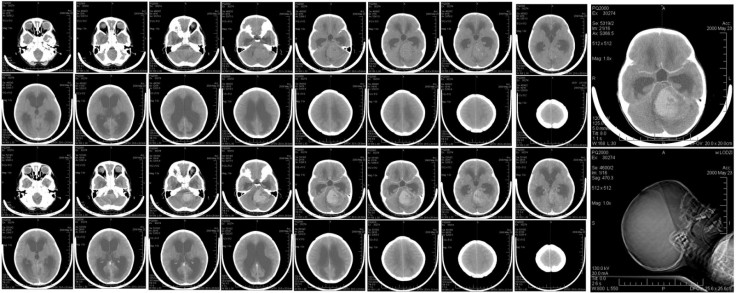Discovery of 'Sonic Hedgehog Protein' Could Prevent Brain Tumour Development in Children

The breakthrough discovery of a protein called Sonic Hedgehog could help researchers prevent the progression of medulloblastoma, the most common brain tumour in children.
The protein induces DNA damage, which causes the cancer to develop.
Sonic Hedgehog belongs to a family of proteins that gives cells the information needed for the embryo to develop properly. It also plays a significant role in tumorigenesis, the process that transforms normal cells into cancer cells.
"Our team studied a protein called Boc, which is a receptor located on the cell surface that detects Sonic Hedgehog," explains Lukas Tamayo-Orrego, co-author of the study at the Institut de Recherches Cliniques de Montreal.
"We had previously shown that Boc is important for the development of the cerebellum, the part of the brain where medulloblastoma arises, so we decided to further investigate its role."
Frédéric Charron, director of the Molecular Biology of Neural Development research unit at the IRCM who led the research, said that the study showed the presence of Boc is required for Sonic Hedgehog to induce DNA damage.
"In fact, Boc causes DNA mutations in tumour cells, which promotes the progression of precancerous lesions into advanced medulloblastoma," he added.
"Our study shows that when Boc is inactivated, the number of tumours is reduced by 66 per cent," said study co-author Frederic Mille. "The inactivation of Boc therefore reduces the development of early medulloblastoma into advanced tumours."
Medulloblastoma is a highly malignant primary brain tumour and although children have a better survival rate than adults, it ranks among the leading causes of cancer-related deaths in children.
Childhood medulloblastoma is more common in males than females, a feature which is not seen in adults, according to the cancer charity Macmillan.
Current treatments include surgery, as well as radiation therapy and chemotherapy. Although the majority of children survive the treatment, radiation therapy damages normal brain cells in infants and toddlers and causes long-term harm.
"As a result, many children who undergo these treatments suffer serious side effects including cognitive impairment and disorders," states Dr Charron.
"Our results indicate that Boc could potentially be targeted to develop a new therapeutic approach that would stop the growth and progression of medulloblastoma and could reduce the adverse side effects of current treatments."
The research was published in the scientific journal Developmental Cell.
© Copyright IBTimes 2025. All rights reserved.






















